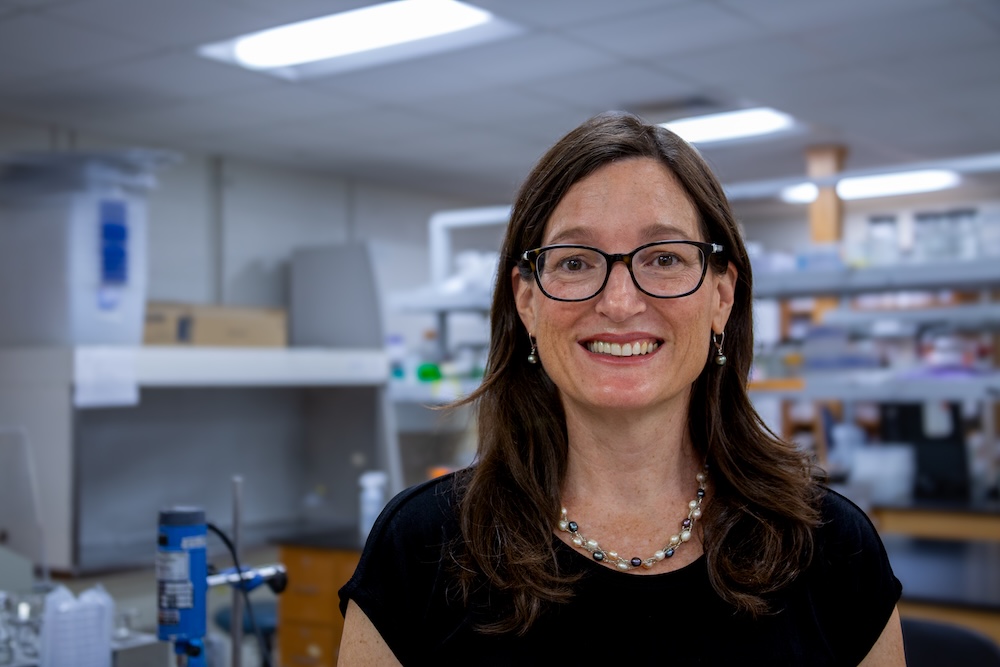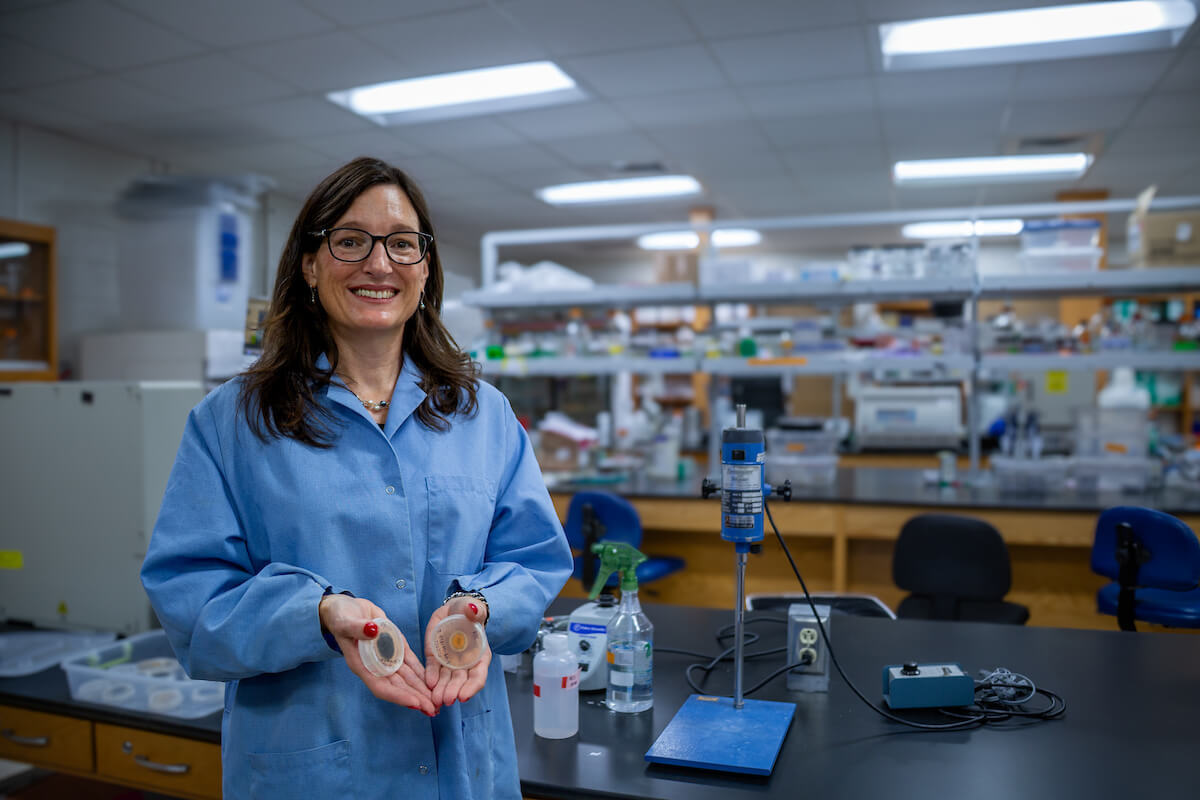
Renowned mycologist Marin Brewer has been appointed as the new head of the Department of Plant Pathology at the University of Georgia’s College of Agricultural and Environmental Sciences.
A distinguished scholar and educator, Brewer joined CAES in 2011 and was named the William Terrell Distinguished Professor in 2022. Her research has focused on the evolution and diversity of fungi that cause plant disease, with particular interest in fungicide resistance, host specialization and fungal mating systems. Brewer’s work has been supported by agencies including the National Science Foundation, the U.S. Department of Agriculture, and the Centers for Disease Control and Prevention.
As an instructor, Brewer has taught highly popular courses such as “Mycology” and “Fungi: Friends and Foes.” She was recognized with the 2021 D.W. Brooks Award for Excellence in Teaching by CAES and with the W.H. Weston Award for Excellence in Teaching from the Mycological Society of America in 2022.
In her new role, Brewer will lead one of the nation’s largest and most integrative plant pathology departments, renowned for its interdisciplinary research and outreach programs that support Georgia’s agricultural economy and contribute to global food security.
Brewer holds a doctorate in plant pathology and plant-microbe biology from Cornell University, a master’s degree in plant, soil and environmental science from the University of Maine, and a bachelor’s degree in biology from the University of Cincinnati.
Strategic vision and departmental priorities
Brewer is focused on strengthening graduate programs as she takes over department leadership.
“One of the top priorities is keeping our graduate program strong, as that is one of the strengths of our department. Our graduate student enrollment in the department has grown over the years, and we do have a very large number of graduate students, as we are one of the few standalone plant pathology departments in the country,” Brewer said. “Making sure the graduate program stays strong and we continue graduate student recruitment efforts, making sure that we’re getting the best grad students in our department and making sure that the students continue to be funded.”
With more than 60 graduate students in the program, Brewer said it is essential to continue improving programs within plant pathology to support the myriad careers students can pursue.
“There’s so much breadth in plant pathology — from very basic research on the different organisms that are causing plant diseases to managing different diseases to biochemistry and field work. Making sure that every graduate student gets the specific kind of training they need for their own research and future career goals is a key priority.”
Plant pathology’s role in human health

Brewer said it’s important for the department’s future to continue plant pathology research that relates to human health, especially through the Precision One Health program run by UGA’s College of Veterinary Medicine. A One Health approach recognizes that the health of people is closely connected to the health of animals and our shared environment, according to the Centers for Disease Control and Prevention.
“The One Health initiative is going to be really important, especially with the establishment of the UGA School of Medicine, and there are not many universities that are land-grant universities that have an agricultural college, a veterinary school and a medical school,” Brewer said. “It is important that plant pathology gets involved in that more because one whole aspect of One Health involves plants. We are doing this work on the plant side, so making sure we have a voice in these new initiatives and that we are at the cutting edge of important research.”
Brewer has helped lead research that has shown that increasing antifungal resistance in agricultural environments poses risk for human health, and she said identifying, monitoring and developing management strategies for fungal threats and other important plant pathogens through research is a defining strength of the department.
“It’s important that we focus on ways to manage the diseases, as that is critical for the state of Georgia and the growers in Georgia. Agriculture is the No. 1 industry in the state, and making sure that we’re not only understanding the biology of these organisms, but understanding how to manage the diseases, is where UGA’s Department of Plant Pathology makes a big impact,” she said.
The robust connection between plant pathology faculty and UGA Cooperative Extension plant disease experts ensures that science-based strategies for management are shared with growers when they need them.
Inclusive leadership
Strengthening academic and research programs for students, ensuring students receive adequate financial and academic support, and being open to concerns and suggestions from faculty, staff and students are central tenets of Brewer’s leadership philosophy.
“Making sure that everyone feels like they have a voice in the department and having a collaborative leadership style is important to me,” she said.
While Brewer will continue her research on ongoing projects with other faculty at UGA, one of her first tasks will be hiring a new faculty member in mycology to teach courses on fungi and continue research on plant-pathogenic fungi, as well as encouraging research collaborations with other disciplines at UGA, such as through the interdisciplinary Fungal Biology group administered through UGA’s Franklin College of Arts and Sciences.
“This group connects all the people working on fungi across the university in genetics, plant biology, engineering, microbiology, ecology, even sociologists who are looking at the impact of different agricultural practices and how willing different communities are to adopt those practices. There are many opportunities for interdisciplinary research,” she added.
Student-centered instruction
Preparing students to address the current and future challenges of a changing climate utilizing basic science and developing technologies will ensure the field of plant pathology continues to advance.
“A lot of students aren’t even aware of plant pathology as a field of study until they take a class as an undergrad. One thing I share with students a lot is the almost immediate impact they can have in the state for growers and for people in Georgia, the country and the world,” Brewer said. “There are so many jobs in plant pathology because there is so much application in the agricultural industry. With new diseases and things emerging that are of importance, it’s like a self-fulfilling job. There will always be a new problem to solve.”



